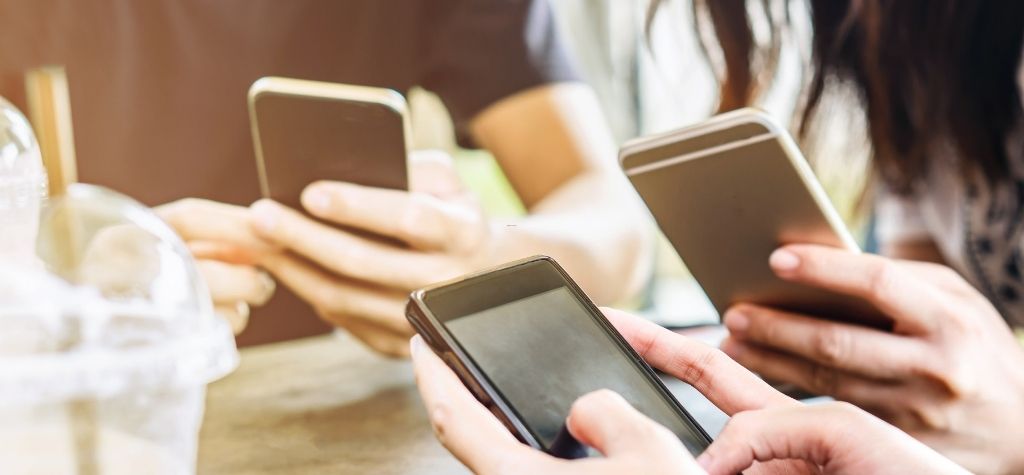In 2025, eye doctors and vision specialists have started using a new term—“Screen Drunk.” This catchy phrase describes a state of digital intoxication caused by prolonged screen time that leaves you with blurry vision, headaches, fatigue, and brain fog.
The average adult now spends 8–12 hours per day looking at screens—phones, computers, tablets, and TVs. For many remote workers and students, this number is even higher. Eye doctors warn that the combination of blue light, glare, poor posture, and reduced blinking rates is leading to widespread digital eye strain, memory lapses, and sleep problems.
What Does “Screen Drunk” Mean in 2025?

How the Term Emerged Among Eye Doctors
The phrase “Screen Drunk” became popular at optometry conferences in early 2025, where professionals discussed the surge in patients with vision and cognitive complaints caused by excessive device use.
According to Dr. Emily Parker, an optometrist at the University of California, patients describe symptoms similar to being hungover: “They feel mentally foggy, their eyes are dry and tired, and their focus is off—almost like they’ve had too many drinks, but the cause is hours of screen exposure.”
Why Digital Overload Is Compared to Being “Drunk”
When you spend too long in front of screens:
✅ Your visual system tires out, making it hard to focus.
✅ Brain function slows, as constant blue light exposure suppresses melatonin and disrupts circadian rhythms.
✅ You feel mentally sluggish and fatigued, just like a hangover.
This comparison helps patients understand that overusing screens has real, measurable effects on the eyes and brain.
Symptoms of Being “Screen Drunk”

Eye doctors have identified five common symptoms. If you notice two or more regularly, you might be “screen drunk.”
1. Blurry Vision and Eye Strain
Staring at screens for long periods forces your ciliary muscles (responsible for focusing) to stay contracted. Over time, these muscles fatigue, leading to temporary blurry vision or difficulty switching focus between near and far objects.
2. Headaches and Neck Pain
Poor ergonomics—like looking down at a phone or leaning forward to read small text—can strain your neck, shoulders, and eye muscles. This strain often triggers tension headaches or migraines.
3. Trouble Focusing or “Brain Fog”
Digital overload affects dopamine and melatonin production, impairing attention and memory. Constant multitasking with apps, tabs, and notifications only worsens the mental fog.
4. Sleep Disruptions from Blue Light Exposure
Blue light suppresses melatonin, the hormone responsible for sleep. People who scroll late at night often fall asleep later, sleep less deeply, and wake up feeling tired.
5. Dry Eyes and Eye Fatigue
When we stare at screens, we blink 60% less. Fewer blinks mean less eye moisture, which leads to dryness, burning, and redness.
The Science Behind Digital Eye Strain in 2025
Eye strain is now recognized as a public health concern, especially as AI-powered devices, AR glasses, and remote work tools dominate daily life.
- Blue light exposure: Reaches deeper into the retina, potentially increasing long-term risk for macular degeneration.
- Reduced blink rate: Prevents natural lubrication of the eyes.
- Constant near focus: Can accelerate myopia progression, especially in children.
A 2025 study by the Vision Council found that 73% of adults and 68% of children report at least one symptom of digital eye strain daily.
Are You Guilty of Being “Screen Drunk”? Self‑Check Guide
Daily Screen Time Assessment
- ⏱ Do you spend 6+ hours on devices daily?
- 👀 Do your eyes feel sore, dry, or blurry after work?
- 😴 Do you sleep poorly after evening device use?
Behavioral Signs to Watch For
- Rubbing your eyes frequently
- Squinting or struggling to read text
- Feeling mentally “foggy” or easily distracted
👉 If you answered “yes” to most questions, you’re likely screen drunk.
Health Risks of Ignoring “Screen Drunk” Symptoms
Vision Decline and Myopia Progression
Studies show that excessive screen use at close distances can worsen nearsightedness, especially in kids and young adults.
Mental Health and Productivity Impact
Screen intoxication is linked to reduced work performance, poor memory, irritability, and anxiety. The brain becomes overstimulated yet fatigued at the same time.
How to Sober Up From “Screen Drunk” Mode

Practical Tips to Reduce Screen Time
✅ Follow the 20-20-20 rule – Every 20 minutes, look at something 20 feet away for 20 seconds.
✅ Use voice commands or audiobooks to reduce reading strain.
✅ Take at least one 15‑minute screen‑free break every 2 hours.
Eye‑Friendly Habits and Break Techniques
- Blink intentionally to keep eyes moist.
- Increase text size to avoid squinting.
- Adjust screen brightness and contrast to match room lighting.
Digital Detox Strategies for 2025
- Have tech‑free meals to give your eyes a break.
- Avoid scrolling before bed—read a physical book instead.
- Try weekend digital detox challenges with family or friends.
Expert Recommendations for Screen Use
Eye specialists recommend:
👓 Blue light filtering glasses for night use.
💡 Proper lighting setups to reduce glare.
🧘 Mindfulness breaks to avoid mental fatigue.
According to Dr. James Carter, a vision researcher, “Your eyes are not designed for endless screen use. Regular breaks are not optional—they’re essential for long-term eye health.”
FAQs About “Screen Drunk” and Eye Health
1. Is “screen drunk” an actual medical term?
Not officially, but it describes real effects of excessive screen use.
2. Does blue light damage the eyes permanently?
There’s ongoing debate, but excessive exposure may contribute to retinal stress.
3. How many hours of screen time is too much?
Anything beyond 6–8 hours per day without breaks is harmful.
4. Can children become “screen drunk”?
Yes, children are especially vulnerable to eye strain and myopia progression.
5. Do eye exercises help reduce screen strain?
Yes, simple focusing exercises and blinking routines can reduce fatigue.
6. Should I get an eye exam even if I just feel tired eyes?
Yes, because tired eyes can mask other vision problems.
Conclusion: Protecting Your Eyes in the Digital Age
Being “screen drunk” is a warning sign for the digital generation. With work, entertainment, and even social lives happening on screens, it’s easy to lose track of how much time we spend in front of devices.
By practicing digital wellness, proper screen habits, and regular eye exams, you can prevent long-term damage and maintain sharp, healthy vision.

